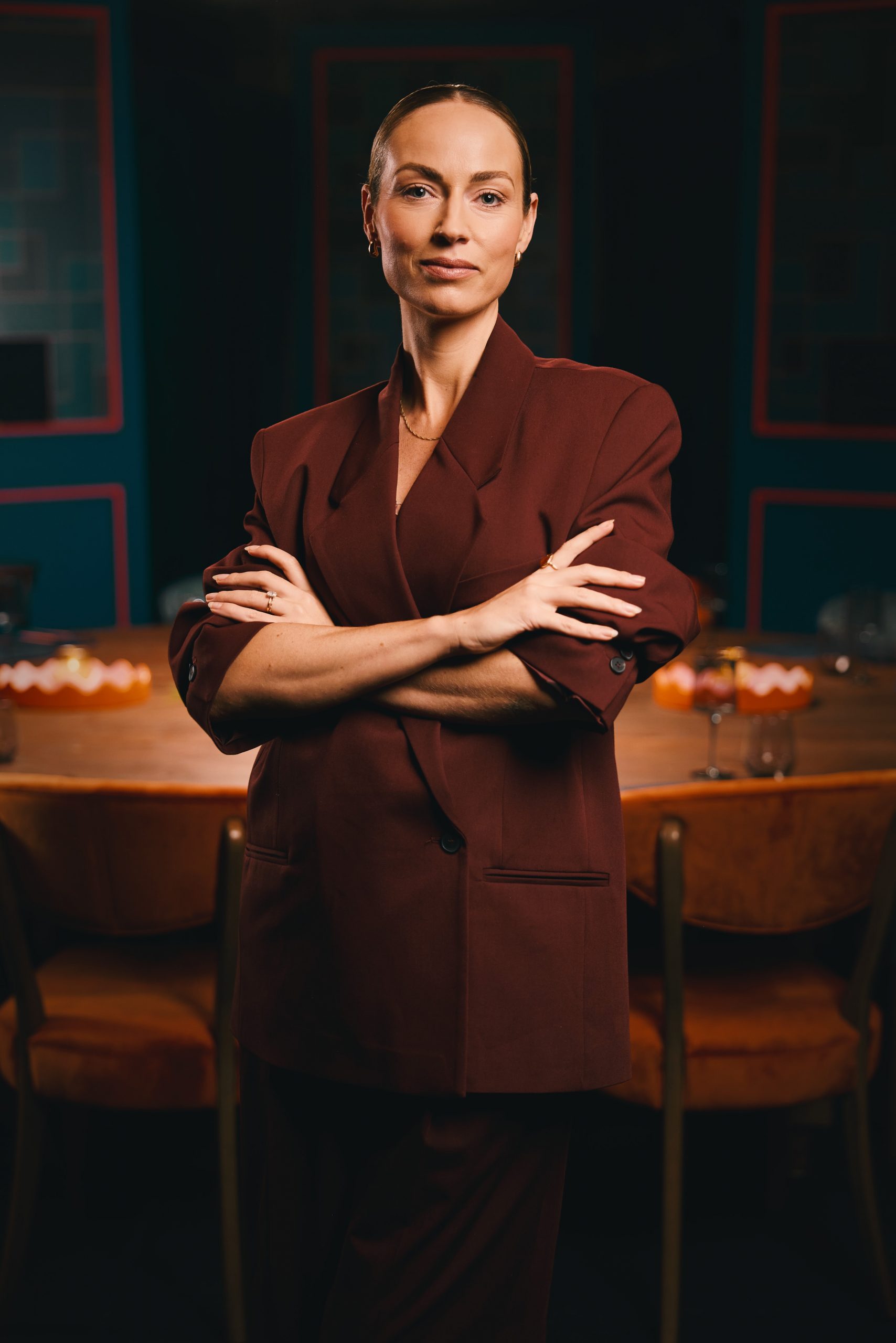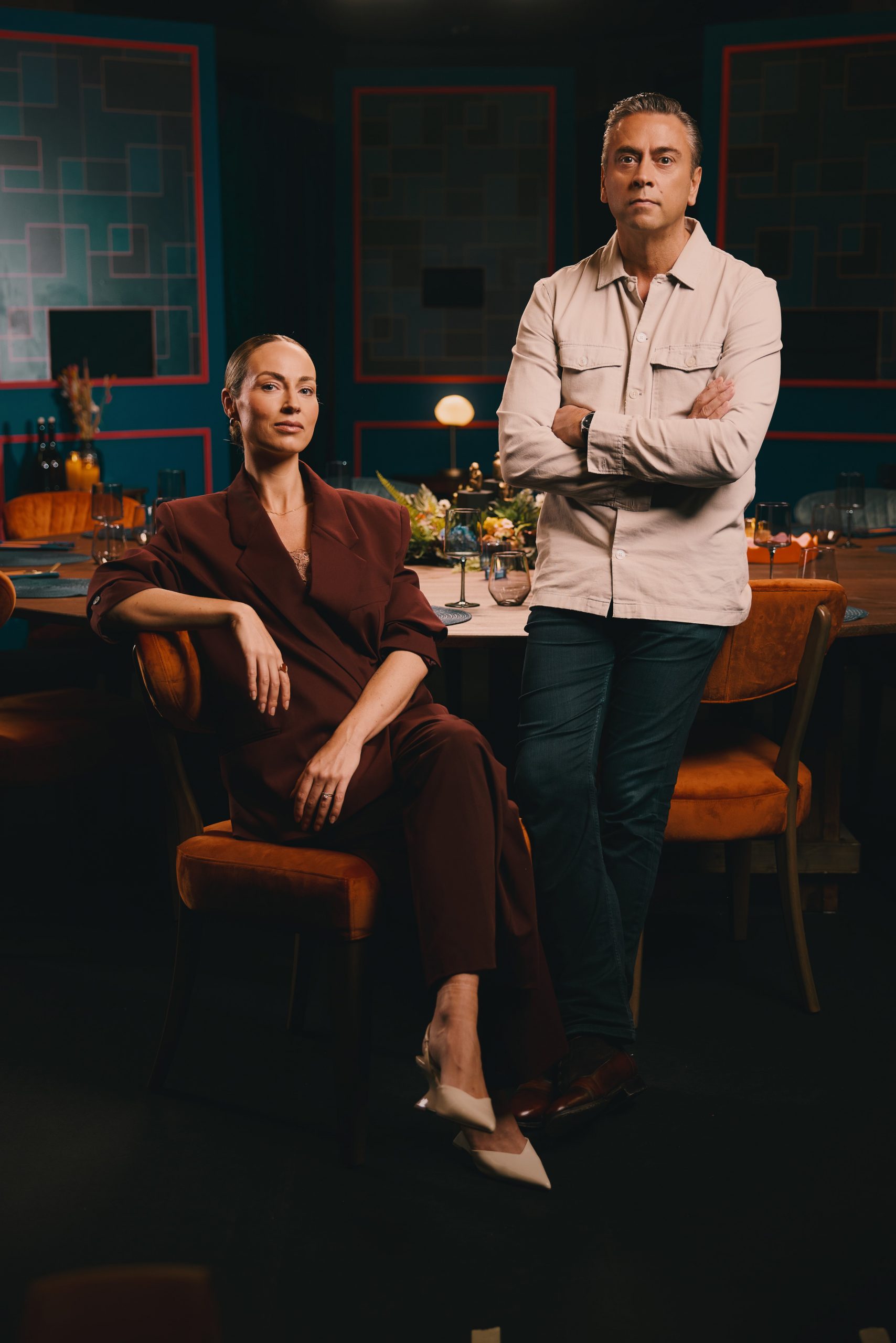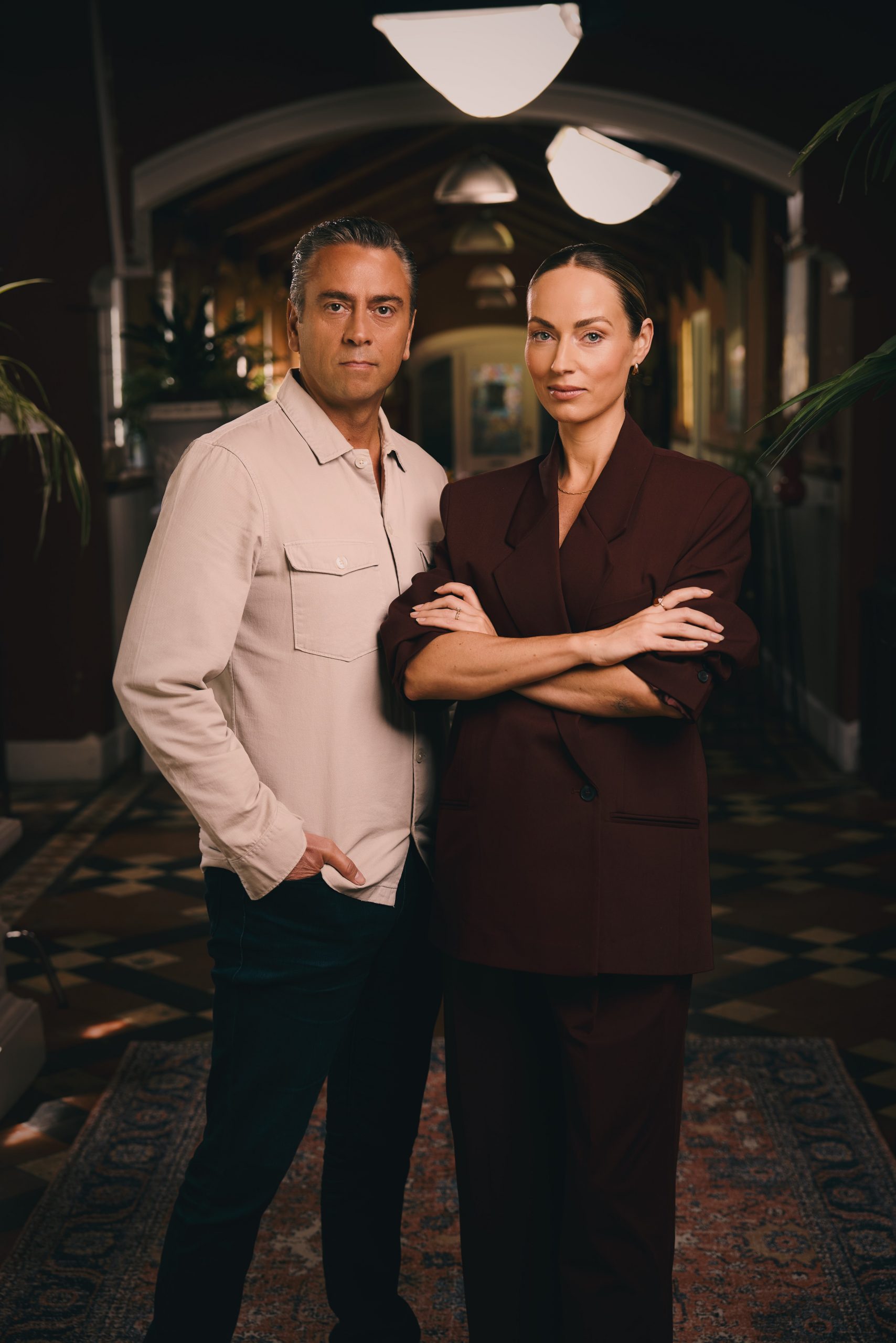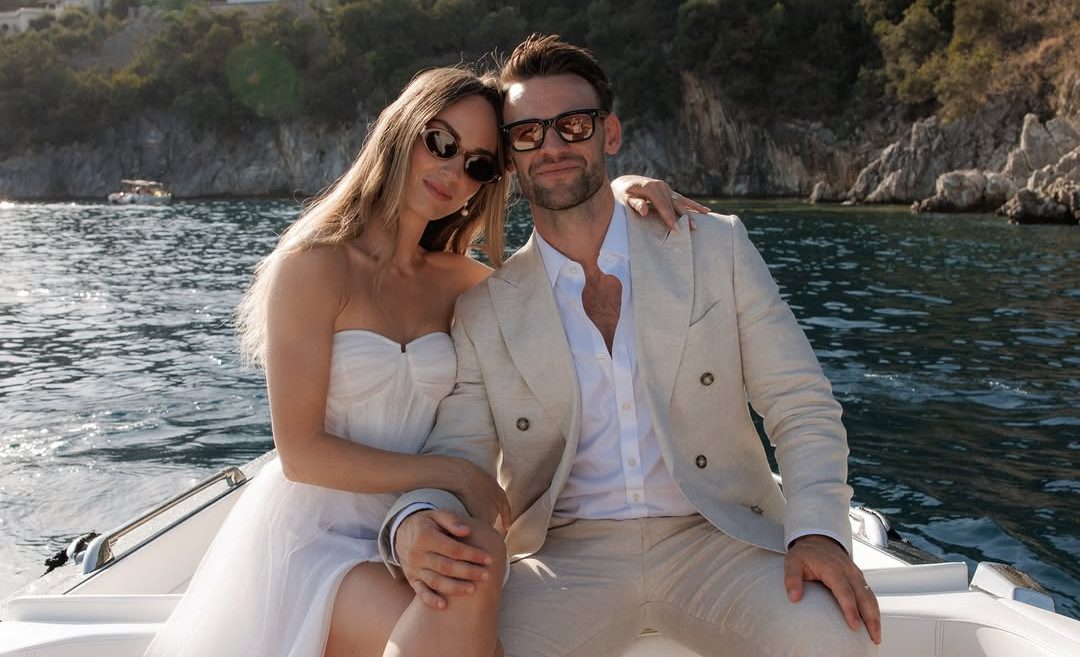
Presenter and psychotherapist Daniella Moyles on the social experiment TV show, Dinner with the Enemy.
Daniella, how’s life?
Really good! I’m in a very exciting season of life, thank you for asking! I’m just coming into the last trimester of my second pregnancy and also getting ready for Dinner With The Enemy to launch, so I have a lot to be grateful for.
Before we talk about the show, tell us how did you get into psychotherapy?
I’ve always had a strong interest in the area. When I finished school, I did two years of a psychology degree in NUIG before dropping out because I got a once-in-a-lifetime presenting role on a travel and adventure show on RTÉ2 called Bulletin TV. I never had any regrets about that decision as it took me on a wonderful decade-long career in broadcasting, but after experiencing a significant burnout in my late 20s, a bit of soul searching (and a lot of therapy) eventually led me back to adult education to finally get that unfinished degree.
How are you finding working in this field now?
I’m so passionate about this work. What I love most about it is how truly meaningful and impactful it feels every day.
Does your modelling career feel like a lifetime ago now?
It did, until we had to record the many slo-mo walking scenes or do some photoshoots for Dinner With The Enemy (DWTE), and I’m proud to report there was still some muscle memory! My modelling career is something I’m very proud of now, I applaud my younger self for having the confidence to go for it and make a dream come true.
Was there an impetus for this career pivot?
It was a mixture of compelling personal experience, genuine personal interest and strong intuition. I left a brilliant role on breakfast radio in 2017 after starting to really struggle with my own mental and physical health, went travelling for two years (which was one of the best decisions I’ve ever made), and then came home in 2019 to start my degree. It’s not lost on me how incredible it is that my two worlds of broadcasting and psychotherapy have come together so perfectly on DWTE!

Tell us about the show…
DWTE is a social experiment where 10 strangers with fundamentally opposing views on social and moral issues take the difficult conversations offline and into the real world across five transformative dinners that are explosive, uncomfortable, inspiring, moving, and everything in between. It’s a wild ride, but a vital one. In our age of echo chambers and block buttons, we’re rapidly losing our capacity to sit with the discomfort that precedes real change and growth. As our discourse becomes increasingly polarised and we grow more disconnected from one another, we’re forgetting how to see the humanity in those we disagree with. This series is a genuinely gripping and gorgeous reminder of what’s possible when we choose conversation over cancel culture.
What is your specific role on the show?
My role on the show, alongside Richard, was to dissect the group dynamics and reveal the implicit aspects of human behaviour unfolding between diners around the table. We also got to be the puppeteers of some very interesting twists and turns that were designed to expose real authenticity instead of the mask of social desirability we can wear.
Finding common ground with someone you disagree can be challenging, what would you advise?
The human experience is universal, none of us get to avoid the pain of grief and suffering. None of us go through life without setbacks and tough lessons. Our adversities shape us as much as our successes, if not more. When we actively seek out this shared humanity, it’s impossible not to understand a person a little more on a soul level. You might still disagree, but there’s a thread of connection between you that creates space for understanding, acceptance, growth or respect to emerge.
When it comes to resolving conflict, what are your top tips?
• First and foremost, stay calm! Nothing is getting resolved if everyone is triggered and reacting instead of responding.
• Listen to understand. So often we’re just waiting for a person to stop talking so we can say our piece. But when we actively listen, there’s often more common ground and scope for connection between us than we think.
• Separate the person from the problem. Try to stay focused on the topic at hand rather than on personal insults or impenetrable defensiveness. Sometimes when we approach a topic like this, the reason a person has come to their set of beliefs will reveal itself.
• That last step can be hard, especially if we fundamentally or strongly disagree with someone! In that case, at the very least, know when things are getting too heated and you need to take a pause.

Why do we as humans keep repeating the same patterns in life?
There are a few reasons. We are hardwired to choose what’s familiar, even if it’s hurtful or destructive to our well-being. Also, despite what we’d like to tell ourselves, we are generally not very good at assimilating new information, preferring instead to warp reality to fit our withstanding beliefs. Our brain is a very metabolically hungry organ, it takes a lot of energy and discomfort to truly change, it’s much, much easier and a lot more comfortable to stay the same.
What are the most common complaints that come across your door?
In terms of disorders, anxiety and depression would be by far the most common, and in terms of destabilising experiences, it would be interpersonal issues, or significant fractures and hurts within a relationship (familial, romantic, professional or friendship) in a person’s life.
Social anxiety is a huge issue, any guidance on how to deal with it?
Social media and smartphones are really driving social anxiety through the roof. My number one tip would be to keep the vulnerable brains of adolescents offline for as long as possible – until 16 would be ideal – so that we can maintain the essential skills of embodied face-to-face interactions in the real world. As we all get sucked further and further into our virtual worlds, we’re really losing this ability at a terrifying rate, exacerbated by many years of Covid isolation! For adults, approach it like exposure therapy, little by little, step-by-step, while monitoring your internal dialogue (be kind to yourself) and keeping an outward focus (practice genuine curiosity instead of self-monitoring). In severe cases, CBT can really help.
Dinner With The Enemy starts Monday October 6th, at 9pm, on Virgin Media Play and Virgin Media One








